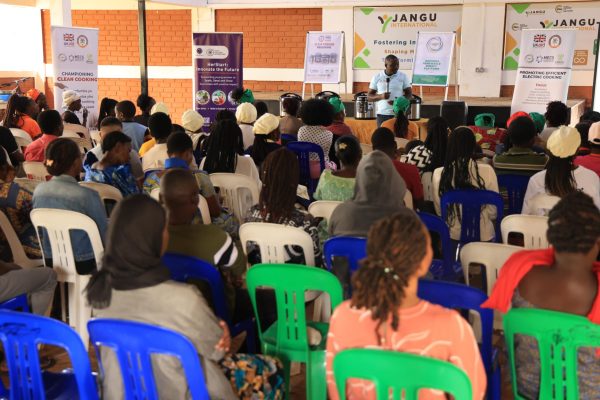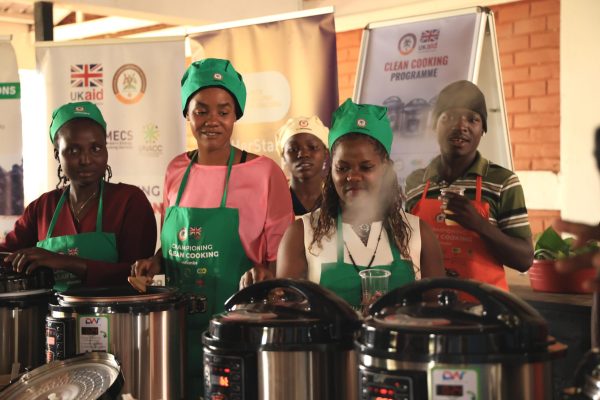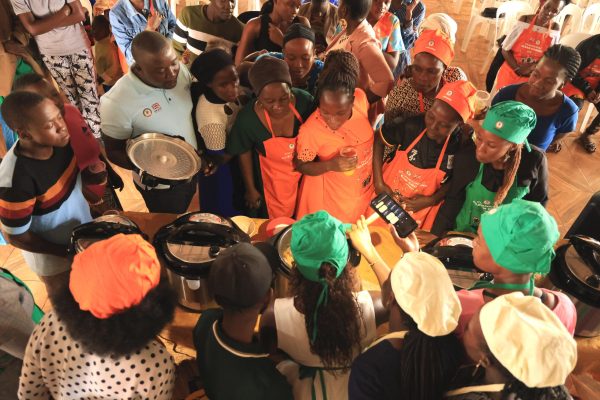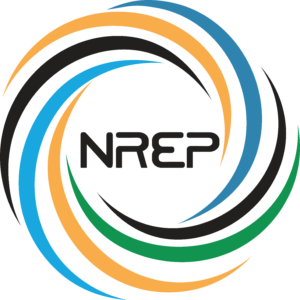On August 20th, 2025, the National Renewable Energy Platform (NREP) held a clean cooking outreach campaign at the Social Innovation Academy (SINA) in Mpigi town. This outreach complimented the Mpigi district outreach campaign at the Central Market under the Behavioral Change Communication for Electric Cooking (BCCeC) Project. The BCCeC is implemented by NREP with support from the Ministry of Energy and Mineral Development, in partnership with the Modern Energy Cooking Services (MECS) programme with funding from the UK government.
Founded by Jangu International, SINA delivers entrepreneurship training and fosters community-led innovation through its deep ties with marginalized youth, refugees and local leaders. Drawing on these networks and proven enterprises, NREP partnered with Jangu International and engaged current scholars and recent graduates at SINA in the aforementioned outreach campaign. The initiative unpacked the health and environmental risks of traditional biomass cooking, demonstrated the benefits of modern cooking technologies and directly addressed community reservations.
The event brought together over 180 participants mostly comprised of women from four countries, namely Uganda, Congo, Zambia and Syria.

Key Highlights & Observations
Dr. Nicholas Mukisa, Deputy National Coordinator at NREP and Project Manager for the BCCeC project, began the workshop with an interactive session to assess participants’ knowledge, attitudes and cooking preferences. The discussion revealed that most participants rely on firewood and charcoal, while very few use LPG or electric coils.He explained that these findings mirror both national statistics and the BCCeC baseline study results. He then presented on the negative health and environmental impacts of traditional biomass cooking.
Participants identified the demand for firewood and charcoal as a leading cause of the country’s shrinking forest cover. They also voiced concerns that, in addition to their high costs, alternative fuels and technologies fail to prepare local dishes as well as wood or charcoal. For example, Ms. Babirye Angella, a SINA scholar, noted that matooke (East African Highland bananas) cooked on gas or electricity often turns soggy and the technologies often lack the “okubobeeza” simmering function essential for flavour.
Buy-in was clear in the many questions raised by participants about:
- Safe operation of electric pressure cookers (EPCs)
- Cost of cooking with electricity
- Reliability of appliances on an unstable grid
- Available financing mechanisms
Most questions were addressed on the spot through open dialogue, practical demonstrations and guidance on appliance operation and maintenance.
Upon the realization that participants perceived electric cooking as a preserve of the wealthy, Dr. Mukisa led a detailed cost-savings calculation, showing how the e-cooking tariff and the UECCC price subsidy programme reduce both operational and upfront expenses for modern cooking technologies.
To cap off the workshop, volunteers (Patricia Nampiima, Atwiire Faith Debora, Dinah Nakimuli, Vanessa Nagendo) prepared beans, rice, beef, kalo and matooke in EPCs. Ms. Babirye Angella herself demonstrated matooke preparation, confirming that the dish can remain tasty when cooked with modern cooking appliances.

Key Challenges & Lessons Learned
Participants identified the following barriers to adopting electric cooking in Mpigi town:
- Perceived high upfront costs of modern cooking technologies
- Electricity tariffs viewed as unfavourable for cooking
- Misconception that electric appliances (microwaves, EPCs) emit harmful radiation into food
- Safety concerns about using appliances
- Limited meal options perceived for electric pressure cookers (EPCs)
- Fear that unreliable power supply would interrupt cooking before completion
- Unequal electricity access preventing some groups from adopting electric
These insights highlighted the socioeconomic and cultural challenges facing the transition to electric cooking.To address each concern, the NREP team and Uganda National Alliance on Clean Cooking (UNACC) representatives in attendance:
- Explained eligibility requirements and application steps for the end-user subsidy programme
- Dispelled radiation myths and demonstrated safe operation and cleaning of EPCs
- Showed that meals continue cooking after power cuts once the cooker has completed at least 60 percent of the set cooking time.
- Outlined alternative clean cooking options (solar cookers, ethanol stoves, volcanic rock stoves, improved biomass stoves) showcased both at the workshop and during the week- long exhibition at Mpigi Central Market.
The campaign underscored the power of hands-on demonstration in shifting attitudes: skeptics who began the session distrustful of the message became champions by the end. As one participant admitted, she initially believed the event was a sales pitch, but after seeing cost comparisons and tasting dishes cooked in EPCs, she recognized the outreach as a genuine effort to improve health, protect forests and advance Uganda’s clean-cooking goals..

Conclusion & Next Steps
The event achieved its objectives by raising awareness of available government and partner interventions, reinforcing targets in Uganda’s energy policy and development plans, and delivering the clean-cooking message directly to grassroots actors.
The young innovators at SINA represent Uganda’s next generation of change makers. Equipping them with clear insights into the health and environmental impacts of traditional biomass cooking is expected to shape their personal choices and drive future innovations in clean-cooking solutions.
Under the Behavior Change Communication for Electric Cooking project, NREP remains committed to expanding awareness through planned engagements and by-invitation events, all in service of Uganda’s goal of universal access to clean cooking by 2030.



